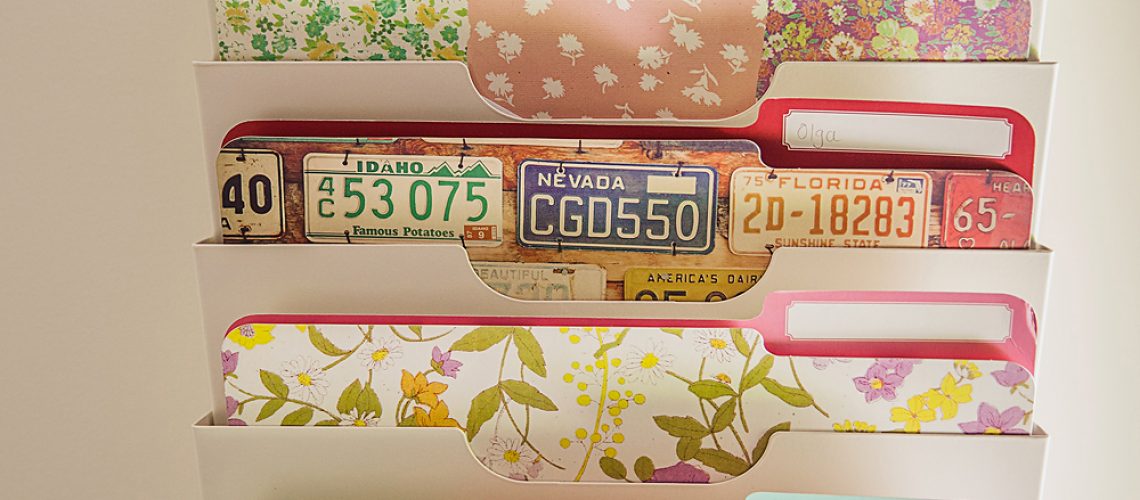Are you overwhelmed by paperwork because you’re not sure what documents to throw out? Documents are one of those things a lot of us are afraid to toss, just in case we might need it. If you’re not sure what to keep, have a read through this blog. Another common reason we’ve kept a bit of paper is because we have to follow up on something. I call this ‘actionable’ paperwork. Papers that require you to perform an action like payment, claiming, filling it in, making a phone call… If it falls in this category, check out the blog post about how and where to keep these.
In this blog, I will go through the other papers you might have. It’ll help you decide if you want to keep it. Keeping papers is a very personal thing. Some people will keep the bare minimum, others will keep everything. It can be daunting deciding what stays and what goes as it has an ‘air of importance’. Here are some things to think about when it comes to what documents to throw out.
Have Paperwork Rules
A good way to start working out documents to throw out can be to have some rules around what papers to keep. Read my blog post Overwhelming Filing Piles? Follow These Rules To Make Filing Easy for help on this.
Questions to Ask Yourself
You can also ask yourself a bunch of questions. Over time, these will just run through your head naturally.
So, let’s say you’ve come across a piece of paper and you’re thinking “Should I keep this?” Ask yourself:
- Does it fall into any of the keep categories?
- Do you refer to it often?
- Have you ever referred to it in the past? What for? Could you have lived without it? If you didn’t have it, would it have been that big a deal?
- Why do you think you should keep it? What would you do with it?
- What would happen if you were to throw it out? Would you be able to get your hands on this information again by looking online, making a call or similar?
It should be clear now if it is being kept. If it is, you’ll want to make sure you label each file correctly. If you’re still not sure, the rest of this blog post will go over a few of the typical papers that we have lying around the home that can often be thrown out.
Documents To Throw Out – Maybe?
Junk Mail
There’s no real reason to keep these. Recycle them. If you are objecting right now, I’d be asking you “what do you use them for?” Your answer will help you decide if they just go into a reading pile to be thrown out, into a craft section, or your action station. Whatever reason, create a home for it and set up some rules around how many you will keep or for how long.
Bills
Keeping bills really comes down to personal choice. Once a bill has been paid, then there’s no real reason to keep it (unless it’s related to your tax affairs, or related to some legal proceeding). So, assuming it’s not one of those, and you’ve decided you really want to keep it, first ask yourself “what are you going to pull it out of the filing cabinet again for?” This will help you decide what heading to give it.
Bank, credit card and superannuation statements
Again, if it doesn’t need to be kept for tax or legal reasons, this comes down to personal choice. Some choose to keep a copy of each so they have a record of their account numbers and the like. You can always put this information into a spreadsheet or in an online password manager if you prefer. If you decide you’re going to keep them, consider how many of them, or for how many years? You could limit it to just the most recent to keep things lean.
A common theme among clients with these documents is that they’ve been kept to action a task of reviewing these documents to help budget or review how much you’ve spent in a year. In this case, be realistic, are you going to do it? If you are, do you really need seven years’ worth or would the last year be most valuable?
Insurance documents
Insurance documents are much like statements. You could keep a record of your policies within a spreadsheet (as the provider will have a copy of your details on file). Others like to keep the latest policy only (that’s all I do). If you are going to keep old policies, ask yourself why this would be useful to you.
Health related documents
This is a common category that a lot of people like to keep. It can be good to have a record of your medical records. To help you decide what you will keep, consider the following:
- What type of documents do you think you will find useful to refer to in the future? Why?
- Do you need to store it into categories? (test results, referrals, “Health Issue A – Depression:”, “Health Issue B – Multiple Sclerosis”…. this can be useful if you have a lot in this category. Makes it much easier to find.
- Can you get a copy of this elsewhere?
Employment related
- Do you have a digital copy of it?
- Why are you keeping it? What will make you get it out of the filing cabinet again?
- Can you access this in any other way?
- If there’s iterations of the same thing, can you just keep the most recent version?
- Can you make a note of some of the details within the document and let it go?
Manuals and warranties
- Is the warranty in date? Do you have or can you read the receipt?
- Is it clear which product the warranty relates to?
- With manuals, have you figured out how to use it, and can let go of the instructions of use?
- Could you find it online? (Most are online now).
Reference Materials
If you’ve come across documents that you consider as reference materials for work or a hobby, consider if you will really look at it again. If you will, then consider if you can just put it in a file labelled ‘Dance” or if you need to break it down into smaller categories.
Inspiration and Ideas
When working with clients, I come across a lot of notes, and scraps of paper that have inspiration, and ideas or project ideas jotted down. If you’d like to keep a record of these (so you can find them easily when you have time to start the said project), create a file labelled exactly this. A broad category of ‘Inspiration’ can be ok. If you have multiple streams, you could refine it a bit more for instance:
- Ideas
- Craft ideas
- Woodwork
- Knitting
- Renovation ideas
- Craft ideas
Receipts
Those damn little receipts. Everyone seems to think we have to keep them, but it’s really not so. Unless they’re for a warranty or tax-related, you are free to release these! Set them free. In fact, just say “no” as they offer it to you at the counter. One less thing to have to deal with at home. If you decide you’re going to keep them. Consider why. With further consideration, you might decide just to purge it. If you’re keeping it for that budget review, the latest six months is all you’ll need. Make sure you photocopy these or scan them, as they fade fast.
I’m sure I’ve missed something, so if you’ve got a stack that doesn’t fit into the keep category or any of the above categories, just refer back to the list of questions. Consider why you would take it out of the filing cabinet again. If you can’t think of a reason, then it’s probably safe to go. You might also ask in the WellSorted Facebook Group what other people do with this type of document.
So, go forth and start filing (or ideally purging). Whatever you choose to keep, review it all in 6 months time and reflect on if you have actually accessed anything. If not, consider dumping it this time around. You’ll soon realise how little you access and the documents to throw out first time around.
If you’re still struggling, or this sounds like the most boring thing you could possibly do, contact WellSorted to give you a hand.
Please note: I am only giving general advice. If in doubt check with your Accountant, lawyer or other professional to help you decide if this advice is relevant to you. This is just a guide to get you started thinking about what documents to throw out, or how to store it, so it isn’t piling up around the house.







